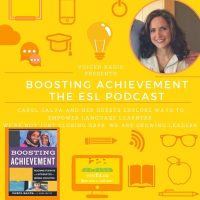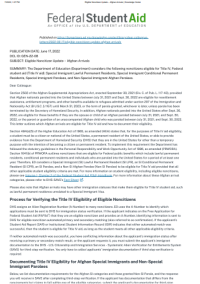Successfully accessing federal student aid often determines whether newcomers can pursue college and career school here in the United States. Staying up to date on the latest federal student aid policies plays a critical role in newcomer service providers’ ability to support and advocate for clients during the application process. This blog covers key updates…










